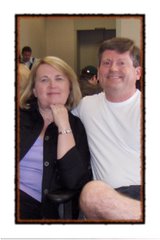Race is just hard for us to talk about; at least it is in my community. Social security may be the "third rail" in national politics, but in Macon, the "third rail" is race. Touch it, and you might die. We live in a wonderfully diverse community. Folks here have continually tried to talk about race, in both formal and informal ways, but it remains the third rail, the thing that we're afraid to touch-perhaps for good reasons.
Our school system is facing a vote on a controversial redistricting plan. Race is an issue in that plan, and we can't talk about it openly. But we must.
Yesterday, Phil Dodson wrote a column for the Telegraph suggesting that the next City Council President be an African American, and today he's drawn fire. He makes the not-so-subtle suggestion that unless Council elects Miriam Paris then they are "just a bunch of politicians out to improve their lot." I like Miriam, but I think that Dodson's conclusion is a stretch. Also, in the article, when he says that Lauren Benedict has actively sought the President's spot, he's just dead wrong.
And, over the last two weeks, I've watched as two wonderful women, Dr. Catherine Meeks and City Councilwomen Nancy White, touched the third rail, and there were plenty of people waiting to point and chatter. I know these women. They are both good people. They are often part of the solution. Neither deserved the filleting they got.
Today, Joni Woolf, a women who seems to grow more wise every day, who has been part of this community for a long time, wrote the following letter to the editor of the Telegraph. She says what I want to say, far more eloquently than I can:
Denying history no way to press forward
During the past several weeks I have read with interest the columns and letters related to the torturous and unresolved status of race relations in our community and in our culture. They bring to mind a quote from the legendary Mississippi writer, William Faulkner, who said, "The past is never dead. It's not even past."
As a culture accustomed to living "in the moment," we simply cannot accept that reality. Everything begins anew, right now, today. We love that expression, "Today is the first day of the rest of your life." Well that may be, but we all have histories, and for blacks in this community and throughout the South (and some of the North), modern black history did not begin the day school integration became the law of the land. And to say that blacks have had equal opportunity ever since Brown v. Board of Education is to deny all of the history that went before that decision, and much that has transpired since.
We are all the sum total, not only of our own experiences, but of the experiences of our parents and grandparents - experiences that were repeated over and over and became family lore; experiences that short-changed generations of parents and grandparents and great-grandparents who were not allowed to learn to read and write and study at our schools and universities, based simply on the color of their skin. These are realities. Passing a new law that says we all go to school together does not automatically give us all equal footing at the starting gate.
Race is an uncomfortable topic for most of us. We would rather believe that everything is fine (and if it's not, it's their fault); that we are comfortable with things the way they are, and just forget the centuries of violence and injustice that destroyed the hopes and dreams of generations of black Americans before today's "equal playing ground" arrived. We may not like to talk about it. And we may keep denying our own culpability in the patterns of racism that still permeate much of our culture. Our denials don't change the reality: The past is never dead. It's not even past. It's time we looked it in the face. Then, perhaps, we can move on.
Joni Woolf is a Macon resident. Sphere: Related Content











1 comment:
You go, Joni!
We all must unite for the sake of our common goals, as well as for the greater good.
Post a Comment